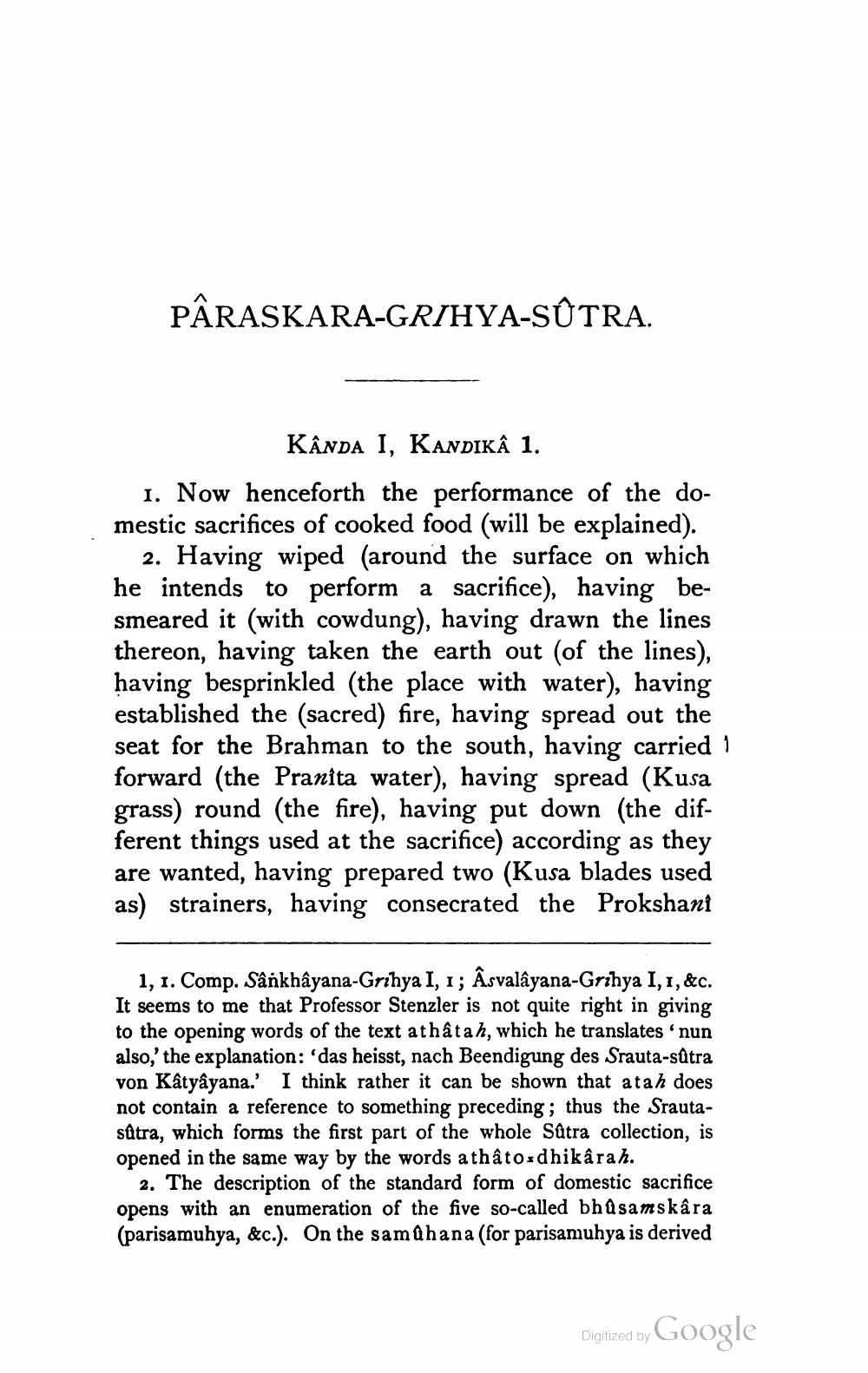________________
PÂRASKARA-GRIHYA-SÛTRA.
KÂnda I, KANDIKÂ 1. 1. Now henceforth the performance of the domestic sacrifices of cooked food (will be explained).
2. Having wiped (around the surface on which he intends to perform a sacrifice), having besmeared it (with cowdung), having drawn the lines thereon, having taken the earth out (of the lines), having besprinkled (the place with water), having established the (sacred) fire, having spread out the seat for the Brahman to the south, having carried 1 forward (the Pranita water), having spread (Kusa grass) round (the fire), having put down (the different things used at the sacrifice) according as they are wanted, having prepared two (Kusa blades used as) strainers, having consecrated the Prokshani
1, 1. Comp. Sânkhayana-Grihya I, 1; Asvalâyana-Gríhya I, 1, &c. It seems to me that Professor Stenzler is not quite right in giving to the opening words of the text athâtah, which he translates'nun also,' the explanation: 'das heisst, nach Beendigung des Srauta-stra von Kâtyâyana.' I think rather it can be shown that atah does not contain a reference to something preceding; thus the Srautasatra, which forms the first part of the whole Sätra collection, is opened in the same way by the words a thâtosdhikârah.
2. The description of the standard form of domestic sacrifice opens with an enumeration of the five so-called bhûsamskâra (parisamuhya, &c.). On the samQhana (for parisamuhya is derived
Digitized by Google




